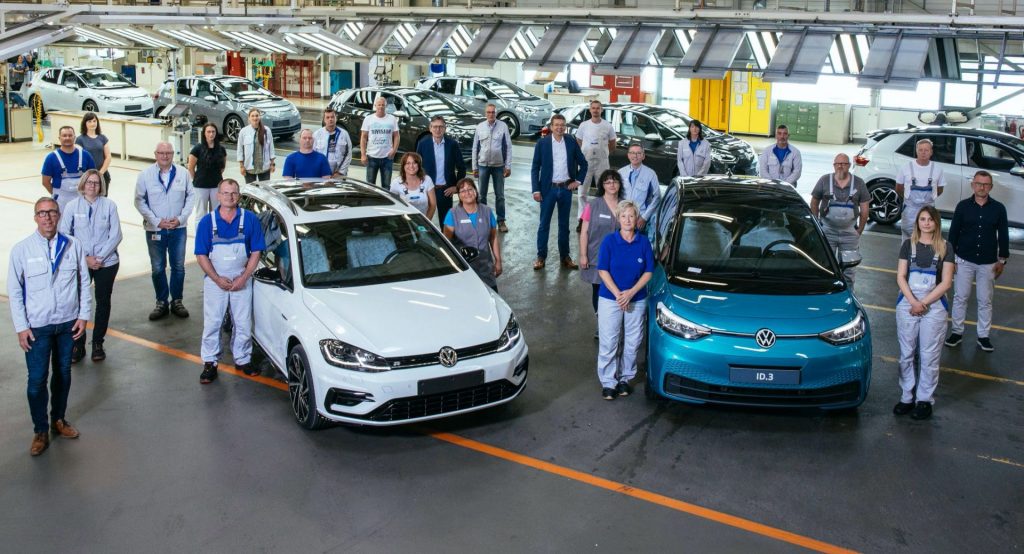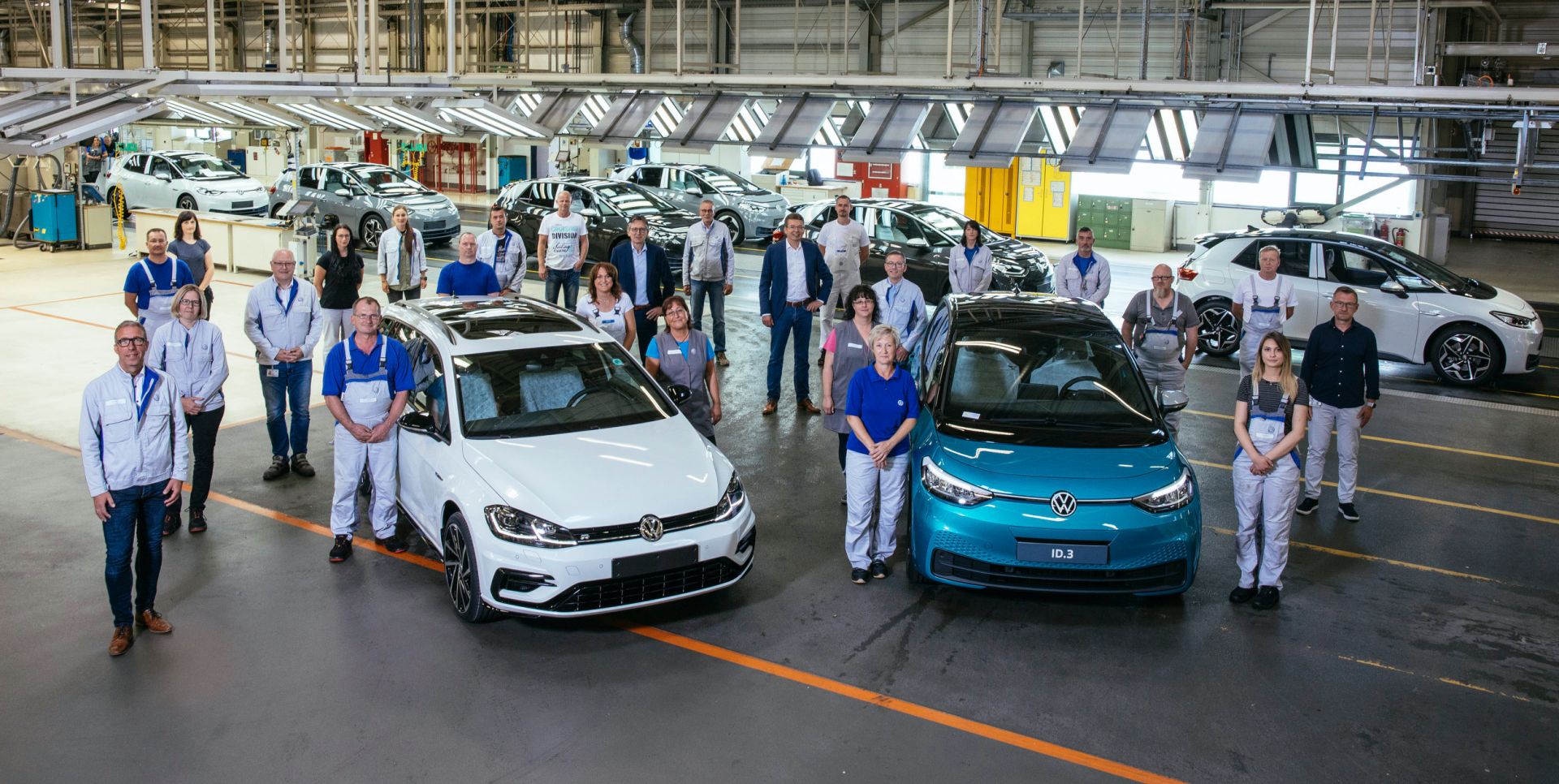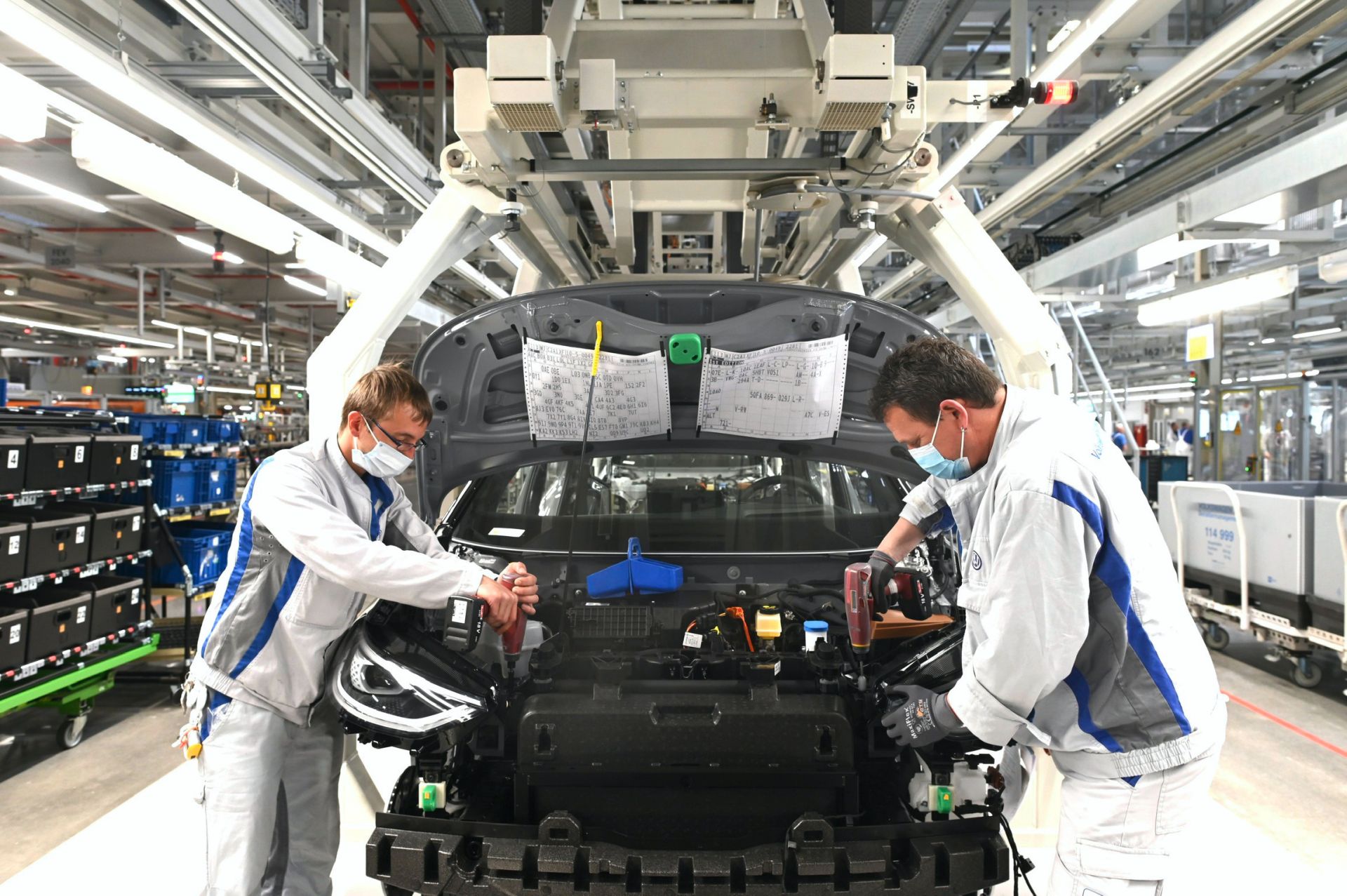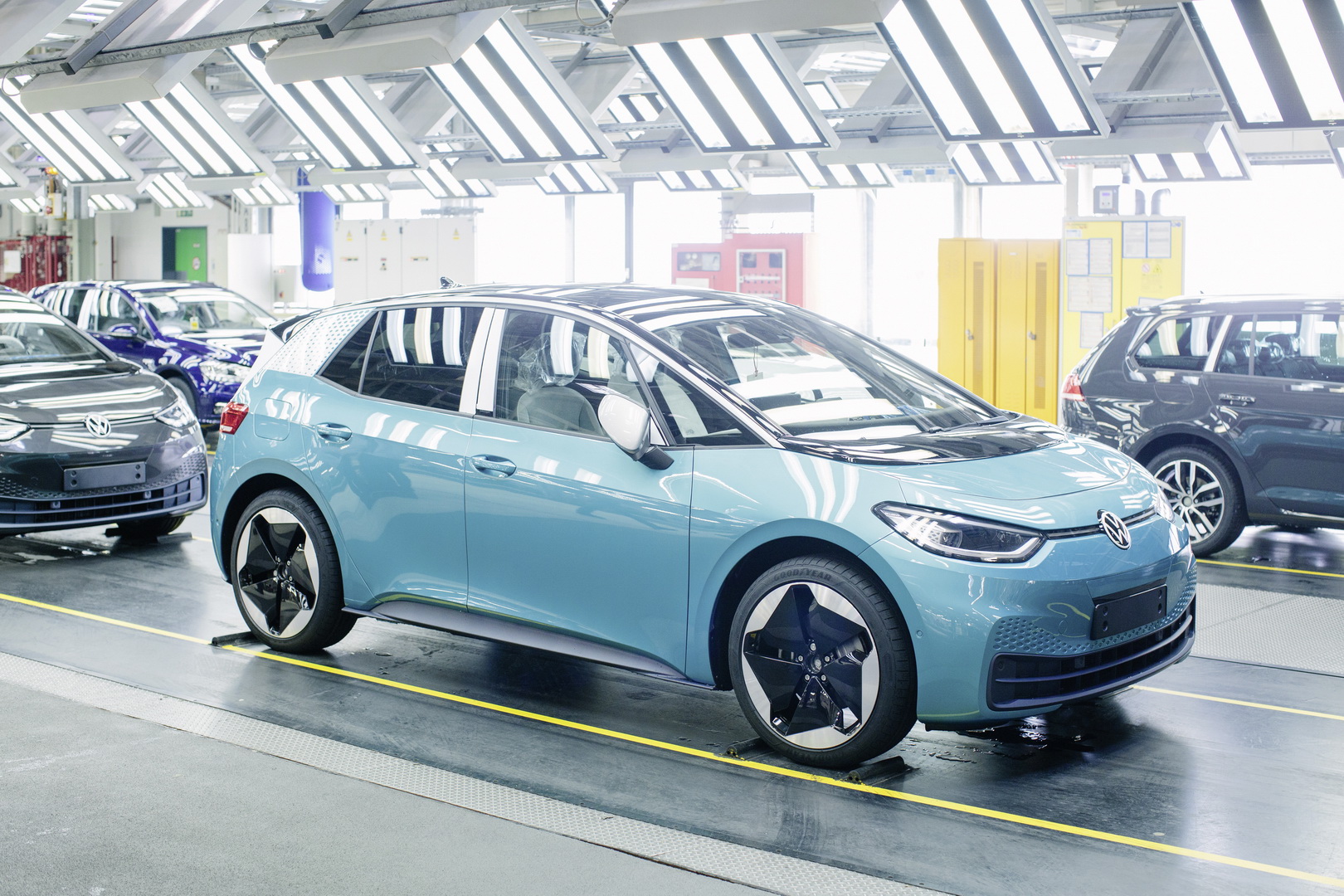Volkswagen’s Zwickau plant in eastern Germany has produced its last-ever combustion engine vehicle, a Golf R Estate.
Built for a German customer, the seventh-generation Golf R Estate in Oryx White Pearl Effect becomes the last of a total of 6,049,207 Volkswagen Polo, Golf, Golf Estate, Passat Saloon and Passat Estate vehicles built since the Zwickau plant opened in May 1990.
From now on, the facility will build only electric vehicles. More specifically, when the plant expansion ends in 2021, Zwickau will produce six MEB-based EVs for the Volkswagen, Audi and SEAT brands, in an annual output of 330,000 units.
See Also: VW To Turn Zwickau Plant Into Europe’s Biggest EV Factory
“Today is a historic day for us. We are proud of what we have achieved so far, and at the same time are greatly looking forward to what the future holds for us,” said Reinhard de Vries, Managing Director of Technology and Logistics at Volkswagen Sachsen. “The trend towards electric mobility will continue to pick up speed. We will meet this demand from Zwickau: we have already created the capacity to build 330,000 vehicles next year.”
Conversion work has already started in Hall 6 where the Golf Estate has been produced so far. Work will continue throughout the summer, with the first electric vehicles to enter production there at the end of the year.
Production of the VW ID.3 1st Edition hatchback has already begun in Zwickau in November 2019, and the ID.4 SUV will follow this summer. Alongside the VW ID.4, an SUV from the sister brand Audi is also planned. The SEAT el-Born will also be made in Zwickau. Interestingly, the bodies for the Lamborghini Urus and Bentley Bentayga luxury SUVs will continue to be produced in Zwickau.
The plant’s transformation also affects the 8,000-strong workforce, with VW implementing a qualifying program that will enable all employees to be prepared for the production of electric cars and for handling high-voltage systems as part of various training measures.
In total, VW’s investments for the plant’s conversion amount to around €1.2 billion ($1.34 billion). Zwickau has a long tradition in building automobiles. Since 1904, cars with combustion engines have been built in the city, including Horch, Audi, DKW models and, later on, Trabants.










